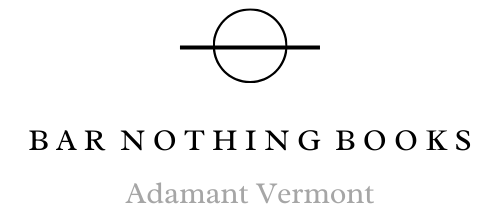 Unexpected Grace is a book about living and dying—not life and death drama—but what happens to ordinary people under ordinary circumstances. These are the questions we all have to face—what it’s like to lose a job, to get sick, to see new life, to lose someone you love, to see your child in a difficult situation, to get old, to have new hope—as Hemingway said, “the good, the bad, the ecstasy, the remorse and sorrow, the people and the places and how the weather was.”
Unexpected Grace is a book about living and dying—not life and death drama—but what happens to ordinary people under ordinary circumstances. These are the questions we all have to face—what it’s like to lose a job, to get sick, to see new life, to lose someone you love, to see your child in a difficult situation, to get old, to have new hope—as Hemingway said, “the good, the bad, the ecstasy, the remorse and sorrow, the people and the places and how the weather was.”
In 2010, Alyssa and Richard Bradshaw are living in West Severance, Vermont, in a house they built beside a rocky brook on land they bought from the Martel family. The Martels live next door on a farm that has been Martel land for generations. The two families get along, even though the Bradshaws are transplants from Connecticut, and the Martels have been Vermonters forever. There are many generations that are a part of this mix, Monika, Alyssa’s eighty-four-year-old mother, Danny, Sam Martel’s grandson, and lots of others. This is the story of what life throws at people and how they deal with it, not exciting, but real, a window into the lives of ordinary Americans.
Unexpected Grace’s First Review:
Seven Days May 31, 2017
She would have to tell Richard if she wanted his opinion, and it would be easy for him to say she ought to have the tests, even if some of them were painful.
Over the past 11 years, Ruth Porter of Adamant has produced three enormous novels — each a meticulously observed study of life in rural Vermont, each self-published with professional design and presentation. Together, The Simple Life, Ordinary Magic and Unexpected Grace form a graceful triptych, a rebuke to stereotypes of the state. In Grace, which opens in 2010, Porter traces the fortunes of two middle-aged couples living cheek-by-jowl on what was once a single property. Sam and Bonnie Martel are struggling farmers with deep roots in the land, while Richard and Alyssa Bradshaw are white-collar transplants “from away.” But none of that matters when Sam loses his job, or when Alyssa receives a frightening diagnosis. The novel’s disparate characters support one another through thick and thin — until Tropical Storm Irene enters the scene. While Porter unabashedly takes her time with her tale, evoking novelists of another era, she offers strong emotional payoffs. And readers will be impressed by the breadth of the author’s knowledge, whether she’s detailing the slaughtering of pigs or the wanderings of the human heart.
— M.H.
The original print version of this article was headlined “Page 32: Short Takes on Five Vermont Books”
Margot Harrison is the Associate Editor at Seven Days; she coordinates literary and film coverage. In 2005, she won the John D. Donoghue award for arts criticism from the Vermont Press Association.
The following poem by Ceres Porter appears at the beginning of Unexpected Grace:

Night Time at Noon
by Ceres Porter
It’s noon,
But inside our house
It is night time.
My mother is on the couch,
Curtains pulled shut
Behind her,
Refusing the sunlight.
She is mourning;
Her sister is dead.
But my eyes have been captured
By the thin ray of light
Coming from beneath the door.
The most beautiful thing, I think
I’ve ever seen.
Illuminated dust particles
Hang in the hazy, golden air.
And my mother is crying;
Her sister is dead.
Read a sample:
Page 156
They got to the Country Club a little before nine. It was already pretty crowded. They found an empty booth, but it was way in the back where they couldn’t see the bandstand. Bonnie sat down, and Sam went to the bar to get their drinks. The jukebox was playing, and the bandstand was dark when he went by.
When he finally got a beer for himself and a Diet Pepsi for Bonnie and was on the way back, the bandstand was lit with spotlights. Junior and the other guys were there with their instruments. Junior didn’t see him, and he didn’t stop, because his hands were full and it was tricky maneuvering through the crowd. He sat down and told Bonnie that he saw Junior and the band setting up. They sat there nursing their drinks and looking around. It was too noisy to talk, even before Junior began to play.
After a little while they heard the band start up and a lot of clapping when Alma began to sing. Sam took a drink of his beer and leaned back in his seat. Whenever he heard Alma singing, he knew exactly why Junior married her. She modeled herself on Patsy Cline, and like Patsy Cline, her voice was cracked and broken by all the pain she had suffered. It made Sam want to do anything he could to comfort her and protect her. He could see a little of what Junior must feel. Out at the farm, helping with the butchering or canning, Alma was just another big woman. But on stage she was like one of those old paintings. She was beautiful, and so was her voice.
When the song ended, Sam said, “I’m goin to walk down toward the front so I can see ’em. Want to come?”
Bonnie nodded. They left their drinks on the table, walked around the edge of the dance floor, and stood with the crowd watching the band. Alma was out in front. She was wearing a bright pink tank top. Her arms were bare. The flower tattoos on her round shoulders were plainly visible.
Junior saw them standing there. He smiled and raised his guitar high for a minute. Sam turned to Bonnie, but she hadn’t seen anything, and Sam thought he could have been mistaken.
At the end of the song, after the applause died down, Junior said, “I just saw we have some real special guests. My folks are in the audience. Hey, it’s great to have you here tonight.” He said something to Alma, and then he started to play ‘Sweet Dreams.’
In her husky speaking voice, Alma said, “We’d like to do this one for Sam and Bonnie Martel. It’s their song.” Then she began to sing in that way that was like Patsy Cline. She didn’t move around much or throw open her arms. She just stood there, singing and looking out into the audience with a sad smile, like she was telling you privately about the bad stuff that had happened to her.
Sam caught Bonnie’s hand. He mouthed the words, “I love you. Let’s dance.”
Bonnie tried to pull away at first, but Sam wouldn’t let her go. “Come on sweetheart. It’s our song.”
She stopped resisting and followed him onto the dance floor. When he put his arms around her and started to dance, the people along the edge of the dance floor began to clap. He wanted to pull back a little and take a bow. He loved to show off his dancing. But he didn’t because he could feel Bonnie cringing. They used to have a great time dancing together before she got so self-conscious about her weight. So he just relaxed into being close to her while he let the music wash over him.
Gradually, the dance floor filled up, and Bonnie got more comfortable, so that Sam was able to get her to join with him in a few fancy steps. They ended the song with a twirl.
Junior said, “Way to go Ma and Pop.” And then Sam was able to take his bow, while everyone laughed and clapped. “Don’t they make a beautiful couple? My Ma and Pop! Ain’t they somethin?”
Bonnie smiled a quick, shy smile at Junior. Then she said, “Come on Sam,” and headed back to their table to sit down. Sam couldn’t get her to go out on the dance floor again until much later, when it was crowded enough so no one could see her.
While they were dancing, Sam noticed a guy who kept hanging around the bandstand. He was alone and just standing there in front of Alma. At the end of the song, he clapped in a clumsy way and asked Alma if he could buy her a drink. He was speaking very loud and slurring his words.
Sam said, “That guy’s too drunk to be there.”
Alma was calm about it. She just smiled and shook her head, trying to ignore him. Sam and Bonnie were halfway back to their seats when they heard the commotion behind them. They turned around to watch.
Junior was in it now. He was trying to get the guy to leave Alma alone. The drunk shouted at Junior, saying he was just trying to be a nice guy and to show his appreciation for Alma’s singing.
It was when he began to shove Junior that Sam dropped Bonnie’s hand and headed for the bandstand. The band started to play another song without Junior, and Alma tried to join in, even though she had backed out of the way and wasn’t near her microphone.
Sam didn’t look back at Bonnie because he knew she would be telling him not to get in the middle of it, and that was just what he was eager to do.
Junior was trying to take his guitar off with the drunk pushing him backwards into the drum set.
Sam was filled with righteous anger. He didn’t even know how much he had been spoiling for a fight. He had to be part of it. He wanted to hurt someone—he wanted to hurt that drunk. No one could stop him at that point, not even Bonnie. If she had held on to his arm and cried, begging him to stay out of it, he couldn’t have stopped himself. He would have shaken loose from her clinging hands and gone without looking back. So he was very glad that all she did was tell him not to go. In the noisy bar, it was easy to act as though he hadn’t heard her.
He pushed through the crowd until he was standing beside the drunk. It wasn’t a guy he knew, although his face looked familiar.
The band was still trying to play. Sam looked at Alma. He saw that when she recognized him, a look of fear came onto her face, but by then, he was too far in to change direction.
He looked at Junior, and Junior said, “Whoa, Pop. I got it.” Still, he thought he could tell that Junior wanted him there for backup.
Sam tried to grab the guy by the arm, but he jerked free and tried to push Junior again.
Sam said, “Okay buddy, it’s time for you to hit the road.” He grabbed the guy’s arm again, and with his other hand, he took a hold on the back of the guy’s shirt.
The man felt loose and wobbly. Sam started walking him across the dance floor toward the bar and the front. He looked back over his shoulder. Junior was picking up his guitar. He was grinning. That made Sam feel great. He couldn’t remember when he’d felt so good about himself.
The drunk’s feet kept twisting around, like he wanted to go back to Junior, but he had to keep walking the way Sam was steering him. When they got to the edge of the dance floor, someone started to clap, and everyone joined in. The drummer did a roll on his drums, and Junior said, “That’s my dad. Thank you, Pop.”
Sam was flying high. He didn’t know what he would do when he got to the door, but he knew nothing could stop him now. The drunk guy turned one way and then the other, trying to go back to the bandstand, but he had to keep going the way Sam was pushing him. When they started into the front room, the bartender was watching, and as they walked past the booths, everyone sitting in them turned to look. The conversations stopped. Junior’s band was playing in the back room, and Alma was singing, but in the front it was quiet.
Sam walked the guy out the door, and conscious that everyone behind him was paying attention, he said, “Go on home now. You’ve had enough excitement for one night.” Then he turned around and walked back through the room without looking around to see what the drunk was doing behind him.
No one said anything. Sam resisted the urge to dust off his hands the way they did in the old cowboy movies. A couple of people at the bar turned around on their stools to shake hands with him. Everyone in the booths was smiling. But when he got to the back room, no one was paying attention any more. Even Junior didn’t notice when he walked past. He was disappointed by that.
